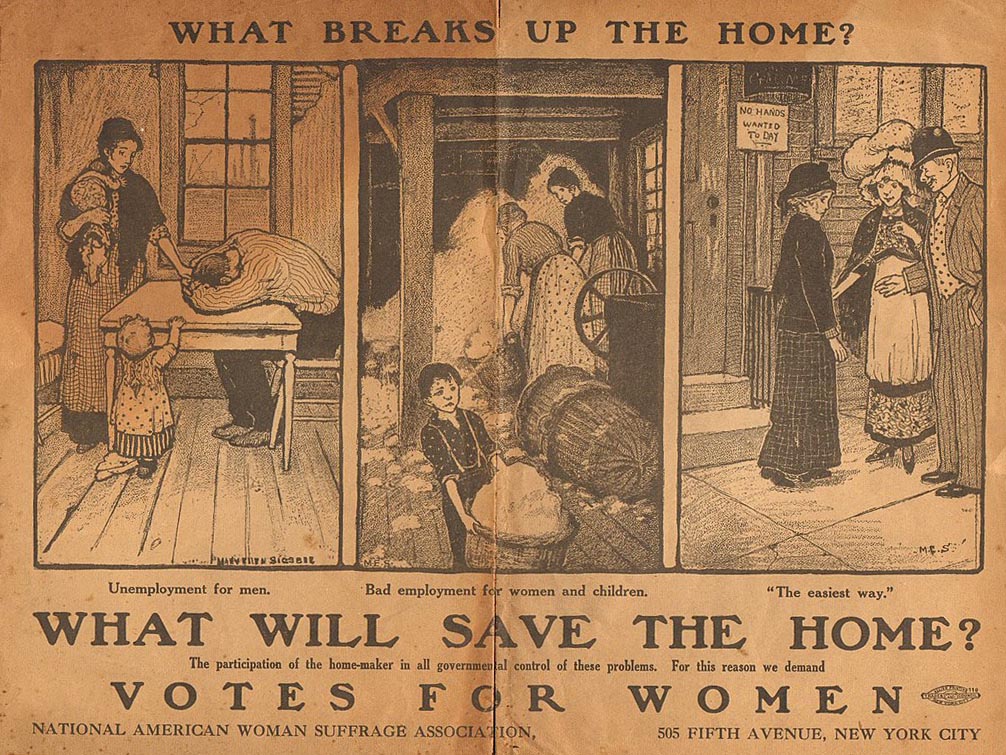The meme-driven short squeeze on Gamestop stock demonstrated in thrilling fashion not only the way that contemporary finance exists independently of material reality, but also that once unmoored, the keys to such power don’t belong to anyone in particular. As a result, left observers were faced with two dialectically counterpoised narratives: that redditor hijinks unmasked the fundamental irrationality and fictitiousness of finance capitalism; and at the same time, that the right to profit from and find collective political expression in such absurdity must be protected.
How should contemporary materialism address this contradiction? For starters, the cornerstone of Marx’s teaching—the famed theory of surplus value, or otherwise known as the principle of self-ownership of one’s labor—has been rendered preposterous in today’s growing economy of fragmented gig work, crowdsourced content cults of Patreon and Onlyfans, and the left’s leviathan pact with institutional media, higher education, and well-salaried professional-managerial coalitions. As independent contractors, gig workers and freelance content creators technically “control” and “own” their labor. This makes their central grievance precarity, and not “exploitation” in the strict Marxian sense, which refers to the extraction of surplus value by an employer.
By contrast, highly-credentialed and influential employees with six-figure salaries do not have direct control over their labor. Guess which class fits better into the Marxian definition of an exploited worker? In order to maintain the appearance that it remains politically faithful to the economically disadvantaged, the democratic-left consensus must now premise itself on the dubious idea that “the working class is the vast majority of society.” As a matter of forming political coalitions, this is an over-inclusive copout. But further still, as Byung-Chul Han argues in Psychopolitics, it is the very structure of Marxian thought that has been rendered obsolete:
“The neoliberal regime transforms allo-exploitation into auto-exploitation; this process affects all ‘classes’. Such classless self-exploitation—which was something utterly unknown to Marx—renders impossible any social revolution based on the difference between the exploiters, on the one hand, and the exploited, on the other.”
Indeed, if the left’s continuous failures, reversals, and embarrassments over the past one hundred-and-fifty years are any indication, then either the working class does not represent any such majority, or the working class as a conceptual formation is simply irrelevant to political outcomes.
In perhaps the most insightful study of political economy I’ve encountered outside of Marx himself, Polish-American political scientist Adam Przeworski came to both these conclusions in his touchstone work of the mid-1980s, Capitalism and Social Democracy.
For any Marxist or populist observer still unsettled by the electoral events of 2020, Przeworski’s work is enlightening. The strength of Przeworski’s case lies in its step-by-step historical account of the dilemmas and choices that democratic-left movements have faced since their inception. The story of western-European socialist movements of a century ago closely resembles the populist moment that so quickly slipped through our own fingers.
Przeworski argues that once the early left movements of western Europe decided to move past anarchist abstentionism and violent revolution, they needed to pursue their goals by winning elections. Once that happened, the challenges of electoral competition required accepting the plain political reality that industrial workers do not form a numerical majority in any western democracy. And, regrettably enough for the party vanguard, workers are not the only ones with the right to vote, nor are they the only ones with ethically legitimate interests to pursue at the ballot box.
Though they constitute major annoyances, blaming wokeness and anti-Trump hysteria can only ever be superficially convincing.
As a result, the socialist parties of the late 1800s and early 1900s were immediately required to broaden their coalition substantially, from a pure industrial workers’ party to one that further included students, retirees, housewives, small-business owners, and white-collar professionals. In other words, a socialist party functioning within the confines of western democracy could never be composed entirely of working-class voters and interests. It would instead need to compromise and coordinate with other voter constituencies, and in many cases those constituencies would have conflicting cultural and material interests. At length, these compromises meant that only reformism, incrementalism, and finally Keynesian macroeconomic supervision would ever be possible for democractic-left political leaders.
Today, among the materialist orphans of the former Bernie Sanders movement, the retrospectives and post-mortems seem to have taken umbrage with precisely this inevitability. Some of the best-argued examples of this theory have criticized the Sanders campaign for its “fusionist left” embrace of Trump-era hysteria and cultural politics over material economic demands. Relatedly, the wider left movement has been scorned for adopting the radical-cultural politics of ascendent figures like Alexandria Ocasio-Cortez, Ilhan Omar, and Rashida Tlaib. In both instances, the central point was that Bernie leaned too far into “woke” cultural politics and away from bread-and-butter economic demands; and further, that the frontlining of race-and-gender based identity politics was too empty to animate voters.
And yet, these decisions resulted in victories. From the socialist-left perspective, these are rightly viewed as the wrong victories—they’ll serve the wrong people and implement the wrong policies—but they are strategic successes nonetheless. Democrats now control both houses of Congress and the presidency, leaving the Republican party to deal with its own disordered post-Trump identity crisis. It is hard to deny that for politicians and corporations alike, wokeness has been fabulously profitable.
Though they constitute major annoyances, blaming wokeness and anti-Trump hysteria can only ever be superficially convincing. These critiques only pose as rigorous self-reflection. What the class-first contingent appears to be more comfortable with is the same factional-left discourse that already played itself out during the Trump years—and which failed to cohere into a materialist political movement capable of putting numbers on the board.
Ultimately, the recrimination of cultural politics as such serves precisely the same function as the post-2016 canard that Hillary Clinton and the DNC had “rigged” the primary. (Indeed, leftists briefly redeployed this complaint when Bernie failed to take decisive victory in the 2020 Iowa caucuses.) In both instances it was necessary to believe that next time the class politics would be real, and next time it would work. Pure capitalism, too, has not yet been tried.
Will class-focused socialists ever swallow this bitter pill, opening the way for collaboration with right-identifying populists, cultural conservatives, or those thinkers and voters orthogonal to the left-right divide?
As Przeworski would argue, assuaging oneself with yet another critique of cultural politics fails to appreciate that none of this was new for left movements. In its most general sense, the enduring paradox of left politics in western democracy has been as follows: a “pure materialist” electoral strategy falls flat with the real working class and does not appeal to a broad enough electorate, leading to baffling electoral failure and critical revisionism. This necessitates adopting coalition-broadening “cultural-intersectional” strategies, which are more successful electorally at the same time that they provide only a superficial caricature of what the left stood for in the first place. These electoral successes are next interpreted as insidious Pyrrhic victories, failures of nerve, which lead the way for a new wave of orthodox materialist polemics and an amnesiac belief that pure class politics will really work next time.
The unfortunate corollary here is that the left currently cannot, and never has, functioned democratically as a pure working-class program of economic demands divorced from cultural considerations or cross-class compromises. After all, outside of cultural-left celebuticians like AOC, where are the “true socialist” leaders in America? Class materialism as a political phenomena remains an entirely fantastical construct. It does not exist other than in Twitter threads and minor podcast discussions. One might even say—heresy of heresies—that the left can only function as a primarily cultural movement. As Przeworski put it in some of the final sentences of his book:
“Socialism may perhaps become possible, but only on the condition that the movement […]ceases to make the socialist project conditional upon the continual improvement of the material conditions of the working class. It may be possible when socialism once again becomes a social movement and not solely an economic one, when it learns from the women’s movement, when it re-assimilates cultural issues.
“The time is not near. There is every reason to expect that capitalism will continue to offer an opportunity to improve material conditions and that it will be defended by force where and when it does not, while conditions for socialism continue to rot.”
Will class-focused socialists ever swallow this bitter pill, perhaps opening the way for collaboration with right-identifying populists, cultural conservatives, or those thinkers and voters who are becoming increasingly orthogonal to the left-right divide? Will they ever come to terms with their own economic moment, or continue to indulge in what Mark Fisher identified as the left’s central vice, namely “its endless rehearsal of historical debates, its tendency to keep going over Kronsdadt or the New Economic Policy rather than planning and organizing for a future that it really believes in.”
The ideas, perspectives, and analyses at this stage must push further, both reminding ourselves of why class politics has failed in the past and how that dynamic has so clearly restaged itself in the present. Identifying this model and recognizing how certain Marxian miscalculations fed into it, one can recalibrate their focus to the new paradigm that we are now in, rather than fall back into the same naive repetitions.
As I explore in my new book, the starting point for understanding our current moment must recognize that we are first and foremost in the midst of a significant crisis in social reality. The situation we face has come about due to a handful of interrelated socio-economic phenomena: the decentering of stable identity, which has paved the way for the final commodification of not only the self but of sociality as such; relatedly, the rise and dominance of social commodities, which is in the process of transforming the nature of economic value; a near-total loss of public trust in traditional unifying institutions and top-down social narratives; and lastly, a failure of popular epistemology to deal with the advent of radically democratized wireless communications technology. It is hard to imagine how well linear left-rationalism would serve us in this context.
From the perspective of economic history, the relevant trajectory is as follows: Decades of neoliberal marketization and atomization have also coincided with a period of rapid financialization. According to French economist Cedric Durand, the process of financialization encompasses a number of intersecting trends:
“The liberalization of finance; the internationalization and increased sophistication of financial markets; the growth of indebtedness among firms, households, and states; the tendency toward the privatization of social security systems and of nature; the fragmentation of the workers’ movement; the proliferation of financial crises…it is above all distinguished by the accumulation of drawing rights over values that are yet to be produced.”
Finance capital—often referred to in the Marxian vocabulary as “fictitious capital,” in the sense that it refers to wealth with no direct, material referent in the present—has outrun its traditional coordinating function to now take the lead in shaping economic reality. This period, of course, seemingly ended in the financial crisis of 2008 and the subsequent Great Recession.
But the crisis was in fact no real climax or culmination. It did not mark the end of the financialized epoch and a return to the fundamentals of the “real” economy. It was just another milestone in a process that has continued apace since then. As the economic historian Adam Tooze remarks in Crashed: How a Decade of Financial Crises Changed the World, the unreality of contemporary political economy has only gotten worse: “What the history of the [2008 financial] crisis demonstrates are truly deep-seated and persistent difficulties in dealing ‘factually’ with our current situation…A post-truth approach to public discourse is simply what the governance of capitalism currently demands.”
The Gamestop phenomenon should thus be considered less of an anomaly than it may have appeared. Though it was quickly written off by most observers as a one-off eruption of stupidity or chaos, many in the financial community have continued to wonder aloud whether instead we should instead be preparing for a “new normal.” Indeed, new outbursts of price activity occurred in early March, leading the Financial Times to conclude that the saga was not over yet, and that “the tussle between funds betting against the stock and amateur traders betting on a climb was still playing out.”
Less than fifteen years after the crisis, the pandemic continues to exacerbate all the worst degeneracies of capitalism, including the spectral drift of economic reality. We’ve watched over 100,000 small businesses and tens of millions of jobs disappear, while the stock market soared. Meanwhile, wholly speculative ventures like Tesla and SpaceX at one point made Elon Musk the richest person on the planet. Though I am not interested in singing his praises, it is nonetheless mistaken to attribute Elon Musk’s supernatural success to the typical mechanisms of worker exploitation, when what so clearly distinguishes him from traditional capitalists is his ability to animate economic reality with the power of mass fantasy. After all, what else should fuel an illusory project of space exploration but fictitious capital itself?
Tesla’s remarkable play on Bitcoin and its subsequent explosion in price created yet another fissure in consensus economic reality, much to the horror of aging paleo-capitalists like Bill Gates. To make matters worse, Elon Musk’s girlfriend Grimes then raised nearly $6 million in 20 minutes by auctioning off digital art backed by non-fungible blockchain tokens (NFTs). Less than two weeks later, Christie’s auctioned off a JPG for $69 million. Even more radically than cryptocurrency, the monumental rise of NFT-backed collectibles portend a new development in the dynamics of value: the manner in which economic activity is no longer driven by concrete commodities or tangible use-values, but rather by collective affect and social relation. As Byung-Chul Han notes succinctly: “Today we do not consume things so much as emotions. The former cannot be consumed without end—but the latter can.” Previously, capitalism enlisted emotion to shore up a physical commodity’s exchange value; today, why bother with the physical commodity at all? Affect and social relation have become capitalism’s primary driver.
Taken together, these developments leave both the old-guard bourgeoisie and the Marxian left united in their shared misunderstanding of what is happening to economic reality. Refusing to understand as they go, both sides of the classical Marxian conflict thus cannot hope to approach how power will constitute itself in the coming unreal economy.
As things stand, it seems we are veering unavoidably into a certain post-truth meta-capitalism, a system so dominated by cognitive labor and the digital fractals of finance that some of the most powerful companies on the planet—including and especially those that are radically reshaping the way we live and think via tech platforms and algorithmic logistics—needn’t bother turning a profit anymore. Today real economic power runs deeper, past mere money commodities and into the fabric of social reality itself.
If that is the case, we should acknowledge that Marxists not only lack a clear economic vocabulary for such a shift, but also have no political metanarrative by which to interpret and respond to it. In fact, the reemergent popularity of Marxian discourse, and in particular its popular adoption in mainstream center-left politics, should itself be seen as an example of the postmodern repetition of forms, or what Mark Fisher might describe as an endlessly-repeating hauntological construct that does more to remind us of what we have lost to the past than what we may discover in the future.
Cultural strategy will be a necessary tool in the struggle to leave behind a form of class politics that has, to date, failed to deliver meaningful material benefit to the working class. The substance of such cultural considerations is something to remain agnostic about. It can be religious conservatism, national pride, or historical mythologizing. What matters is that a political program has a cultural arm to begin with, and it should be one capable of animating and unifying the voters and social institutions it seeks to benefit and depend on.
Beyond these strategic considerations, contemporary materialist politics will also need to dispense with its commonly backward thinking on finance and its fixation on linear economic rationality. If the term has any enduring worth, “communism” must dare to imply a detachment from traditional systems of economic rationality and standards of value. The communist horizon entails precisely our liberation from such linear economism. What is this unreality that we must embrace? It is not caprice, not chaos, not indulgence, but rather an openness, a liberation, an analysis borne of and suited to precisely the radical present.









